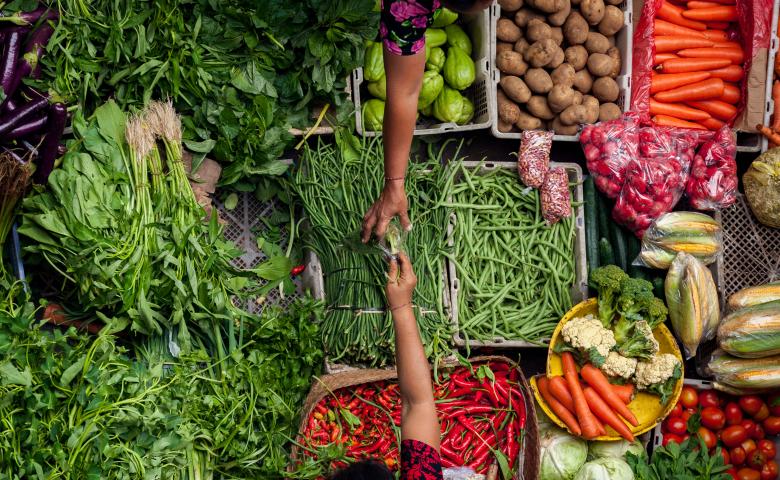Farm Business School, digital literacy for farmers, and marketing training courses—these were just some of the inventive strategies against the climate crisis presented at the Interregional Dialogues on Family Farming in Kathmandu, Nepal.
“Family Farming and Inclusive Rural Transformation: Innovations for Sustainable Development in a Climate Change Context” was held on 12-14 August 2025. Experts from 12 Latin American, Asian, and Caribbean countries discussed the respective challenges of family farms, particularly in the context of the climate crisis.
The dialogue also fostered an exchange of practices and solutions, ranging from specialised training to agroforestry.
The event was hosted by the Food and Agriculture Organisation (FAO) Nepal and jointly organised by Nepal’s Ministry of Agriculture and Livestock Development and the Nepal Agricultural Cooperative Central Federation Ltd. IFOAM – Organics International, along with policymakers, researchers, and farmer organisation leaders, joined the three-day dialogue.
Family farms are typically small-scale, family-run farms covering less than two hectares of land. While seemingly small, they are major food producers, contributing between 27% and 67% of total production in Latin America and the Caribbean alone. Globally, there are 550 million family farms.
Despite their significant contributions, family farmers face many challenges, including low yields, limited access to markets and financing, economic downturns, and the climate crisis. Those who work on and manage family farms also tend to have weak bargaining power and are vulnerable to poverty and malnutrition.
The strategies presented by the FAO and participating experts and stakeholders highlighted the importance of skilling up farmers to become market oriented to help boost their profits and access markets.
Patricia Flores, Senior Manager Global Academy of IFOAM – Organics International, emphasised the importance of markets in the transformation of the food system, citing the tangible impacts of a farmer-centred market.
Drawing a case from Peru, Flores talked about Agroferias Campesinas, a collective of farmers and producers that bring in diverse products from the provinces to the capital in Lima. Strong stakeholders of the agroecological movement in Peru including the gastronomy sector and consumers associations, played a crucial role in the 20-year extension of Genetically Modified Organism (GMO) ban in the country.
The markets are exposing us to public opinion. You are interacting with consumers, with the diversity of commercialisation channels and that brings opportunity to raise awareness. That is an opportunity to bring ideas and prioritise the needs of the farmers
Senior Manager Global Academy
To step up the markets, Flores said there should be systemic support and empowering tools for the farmers. Capacity building is needed for farmers, particularly digital literacy that would help them become more oriented in business.
Flores noted that capacity building should also include diverse actors within the food system. This involves investment in education and training of public officials at the local and national level to foster relevant participation on all levels.
One of the strategies presented during the dialogue was FAO’s Farm Business School, which helps farmers increase profits and access markets through training.
Although the participatory approach was first introduced in 2004, the program has been updated to bring knowledge and skills to rural farms, according to Valentina Sommacal, Rural Institutions and Services Expert. It has since been implemented in several countries, including Laos and Guatemala.
Knowledge-sharing in rural communities was also central to the approach presented by Edmund Centeno of the ComDev Asia Initiative.
In the Philippines, where there is abundant information on farming but internet access in rural areas is scarce, a program was created to bridge this gap and bring knowledge materials on family farming and agribusiness directly to farmers. This is done through digital literacy training—from using smartphones and photography, to leveraging social media for marketing, and engaging in e-commerce for transactions.
The dialogue was one of three family farming-centred discussions hosted by the FAO. An interregional dialogue involving European, Central Asian, Latin American and Caribbean countries will be held on 22-23 September in Rome.

